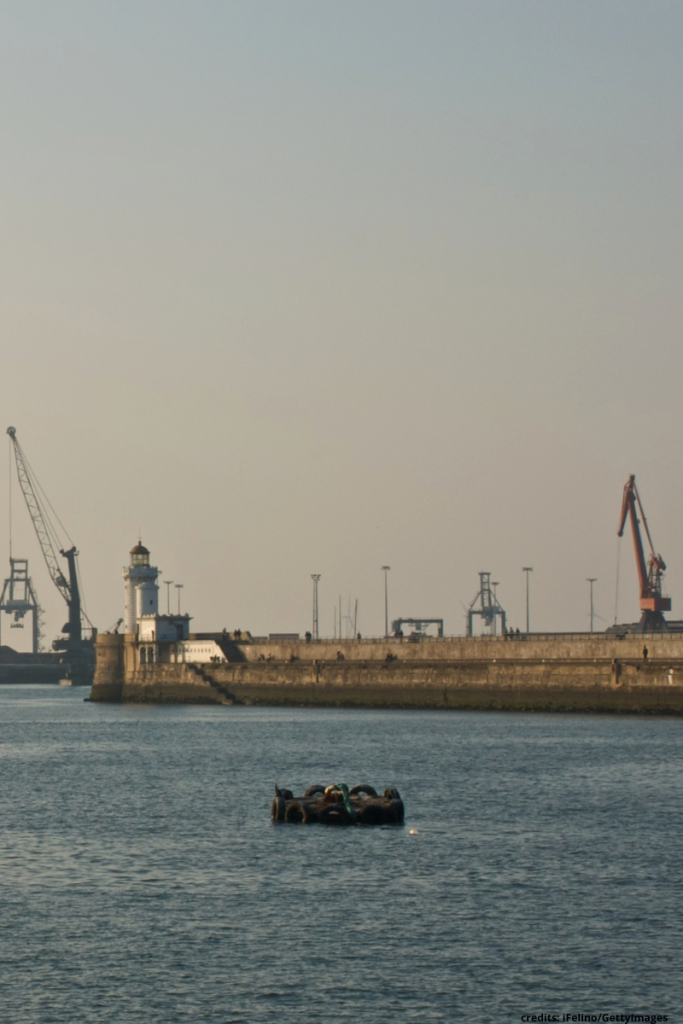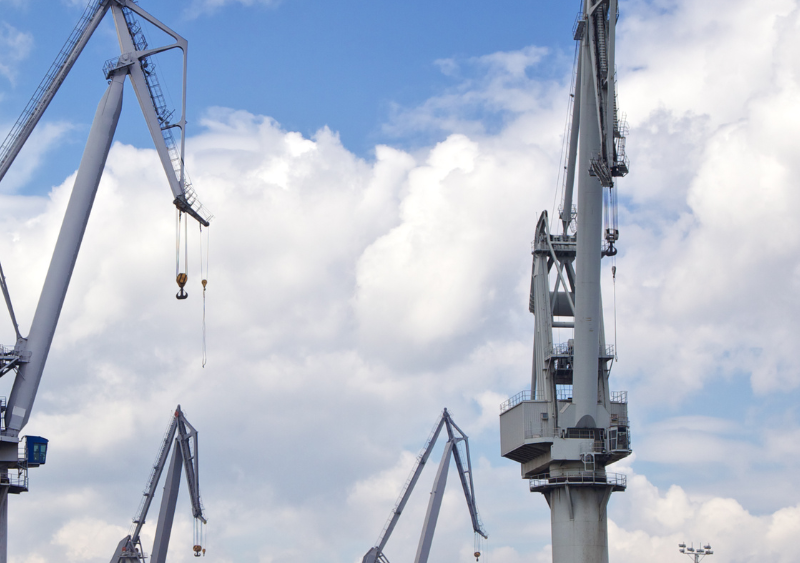In the heart of the Cantabrian Sea, the Port of Bilbao emerges as a bastion of growth and sustainability, charting its path to the future with an ambitious strategic plan for the period 2023-2026. This port has proven to be a benchmark not only in terms of impressive numbers, but also in its commitment to labor stability, environmental innovation and global leadership.
Continuous growth and job stability:
Last year, the Port of Bilbao marked a milestone by moving 32.7 million tons, registering a growth of 5.1%, exceeding the average for ports of general interest. Beyond the numbers, the port is proud of a unique labor stability pact in Spain, laying the foundations for an efficient logistics chain and a robust recovery.
The Port Authority has approved its 2023-2026 strategic plan to make the Port of Bilbao a benchmark in Atlantic traffic, guaranteeing its enhancement to society. Thanks to the investments underway and the stevedoring agreements signed, the foundations have been laid to advance this growth.
Global Connectivity:
The tourist attraction also increases with 78 cruise ships and 109,348 tourists. International connectivity is a key pillar, evidenced by the 163 ferry berths between Bilbao and the United Kingdom and Ireland. This tourist flow is enhanced by the proximity to the international airport and the charms of Bizkaia.
In 2022, new shipping companies were incorporated thanks to operational and logistical facilities, as well as proximity to an international airport. The port’s facilities and services make it attractive for logistics operators and maritime transport companies.
Strategic railway bets:
The advances in railway management are notable. The FENIX project (Federated Network of information Exchange in logistics) promotes the train service (eportua rail) and artificial vision technologies based on Deep Learning. The modernization of railways reinforces the efficiency and safety of freight transportation.
This project is co-financed by the CEF (Connecting Europe Facility) program within the federative platforms project promoted by the Mobility Directorate of the European Union.
On the other hand, the Port Authority exercises its powers regarding the management of railway traffic in the port and assumes responsibility for maneuvers with the aim of having a universal, neutral and competitive service 24 hours a day, 7 days a week. week.
Environmental commitment and innovation:
Bilbao is evolving towards a more sustainable activity with ecological ships from Brittany Ferries and Finnlines. Projects such as BilbOPS, which implements OPS technology to reduce emissions, and the electrification of terminals demonstrate a genuine commitment to environmental responsibility.
Within the FENIX project, the Train service (eportua rail) has been developed and is being tested by both terminals and railway companies. In addition, artificial vision technologies based on Deep Learning have been successfully tested for the real-time recognition of license plates and badges of vehicles, containers and merchandise.
Leadership in innovation and sustainability:
Bilbao PortLab stands as an epicenter of innovation with projects such as Odei.io, Quantum Mads, D&A Innovative Systems and Autopilot. The collaboration with BAT (B Accelerator Tower) amplifies its global reach, consolidating itself as a reference on the map of port innovation.
In November, the Port Authority organized the first International Port Sustainability Congress where experts from all over the world met in Bilbao to share knowledge, experiences, techniques and tools in the creation of a common sustainability strategy for the port environment.

Technological advances and infrastructure improvements:
The PIDE (Integrated Stopover Procedure) has been completely remodeled for its migration to eportua, incorporating all the functionalities related to the entry/exit of vessels, new legal requirements for waste notification and sending information to the European SafeSeaNet network (SSN ).
Development projects and future vision:
The Port of Bilbao leads short-distance traffic, with notable growth. There are several specialized shipping companies that offer more than 15 weekly calls for ships that operate these routes. This traffic is increasing, since there is still a lot of merchandise that uses the road and is capable of traveling by sea efficiently and safely.
The BilbOPS project to provide container, ro-ro and cruise terminals with facilities with OPS (Onshore Power Supply) technology is an initiative that will mark a before and after. In 2025, ships will be able to turn off their auxiliary engines during their stay in port, reducing greenhouse gas emissions, vibrations and noise by 40%. The project includes a photovoltaic plant on a self-consumption basis.
This strategic investment places the Port of Bilbao at the forefront of the network of European ports that will deploy this sustainable technology at the service of their customers and in line with the “Fit For 55” objectives established by the European Union.
In summary, the Port of Bilbao is not only a vital logistics center, but an example of how sustainability, innovation and strategic vision can converge to drive success and lay the foundations for a promising future. With each project and commitment, Bilbao reinforces its position on the global port scene and contributes to the sustainable development of the region and the planet.



Comments are closed.